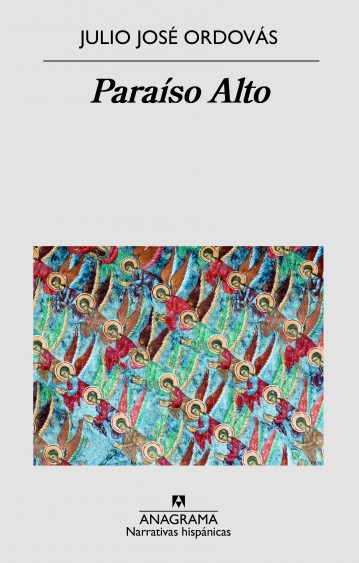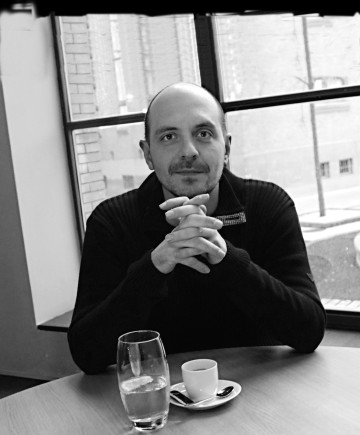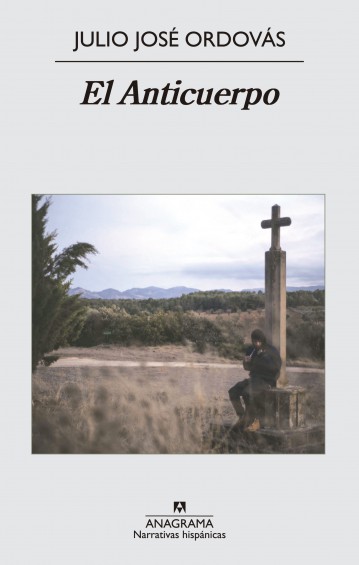
SERIES:Narrativas hispánicas
Existing on the frontier between life and death, Paraíso Alto is an unusual place of pilgrimage: an abandoned village that, mysteriously, attracts suicides. There, working as an angel (and as a gravedigger), lives a man who dresses like a scarecrow and behaves with the innocence and clumsiness of a silent movie star. Through the village’s streets parades a spectral procession of suicide victims: a girl who walks on her hands, an old wizard who has fled from an old-people’s home, a porno star, a waiter with a Nietzschean moustache, a bookseller who looks like a detective, a flautist, a drunk Pierrot, a deserter, a melancholic road sweeper and a pair of twins in wheelchairs… Accompanied by that angel who sings, over and over and again, the same song, they all perform a delirious dance of death.
According to Homer there are two doorways to our dreams. In Paraíso Alto, however, there is only one: a place where real and imagined shadows become confused. Crossing the threshold is to follow Julio José Ordovás as he explores the contours of the abyss, in search of joy, or sadness and of the mystery of life, sustained by a mixture of transcendence and irony, contention and nonsense, delirium and banality in a perfectly unstable equilibrium. Without excess or moralizing and with poetic suggestiveness, Ordovás takes on one of the biggest taboo subjects of our age: suicide. And he does it with a dark humour, in which dreams take on their own reality. A story told with a narrative voice consolidated after the splendid reception of his debut, El Anticuerpo: «A kind of desolate Amarcord of the steppes. The shadow of Huckleberry Finn is a long one and its blissfully rebellious influence here is unquestionable. A novel that is essential reading because of its transgressive rebelliousness» (Jesús Ferrer, La Razón); «An original, disturbing and uneasy read, almost always stark, sincere, brilliant and full of flashes of inspiration» (Antón Castro, Heraldo de Aragón); «Ordovás surprises us with a story of small stories in which a poetic breath emerges from the writing, which is concise and precise, and filled with original images… A novel that encourages the reader to keep an eye out for the future work of this writer» (Íñigo Urrutia, El Diario Vasco); «Written with a poetry as harsh as it is absorbing» (Ignacio Martínez de Pisón).
«An important and singular book that is defiantly poetic, truthful, mysterious, liberated and, yes—because of its courage—a little bit suicidal (or, at least, kamikaze in its risk-taking). A book that is of remarkable quality, but which constitutes a leap in the dark, both unsettling and alluring, a book that draws you in and scares you, because it resembles a nightmare which, clearly, refers to us all» (Juan Marqués, La Vanguardia).
«Julio José Ordovás gives his novel a style full of self-confidence and subterranean humour with some funereal stories that he tempers with a contained language, interweaving the poetic with the stark» (Íñigo Urrutia, Diario Vasco).
«Paraíso Alto contains small stories with gigantic hearts» (David García, La Buena Vida).
A creative, profound and intelligent work… The importance of Ordovás’s novel, which is vividly alive, resides in its profound exploration of the most intimate frustrations of contemporary man … ‘Paraíso Alto’, just like the previous book ‘El Anticuerpo’, hums with the rhythms of poetry, of journalism, of experiments, with the constant heartbeat of a ledger. In its own way ‘Paraíso Alto’ is a verse, a song, a tragedy, a comedy, a farce, a Western, a vertiginous journey, a dream … and so on, and on again» (Carlos Calvo, El Pollo Urbano).
«Ordovás is an authentic poet because he dances with death. And maybe it is paradoxical, but in the background, very much in the distance of his lethal song, his mortal dance, there is a nostalgia for a paradise lost» (Maica Rivera, Revista Leer).
«A suggestive, original and surprising novel» (Jesús Ferrer, La Razón).
«Julio José Ordovás has the vocation and talents of a great writer and if, as one of his characters says, “what really makes a great writer is the ability to stitch the silver thread of dreams with the needle of reality”, we can all agree that he definitely isn’t a lesser one» (Alfonso López, La Nueva España).
« (This book’s) originality stands out, alongside its fresh style and lack of rhetoric flourish. Paraíso alto doesn’t avoid humour or transcendence as it “takes us to the place where suicides go for their last goodbye. An abandoned village inhabited by a man who decided against taking the last step, an apostle and comedian, confessor and alter boy, philosopher and sage, who lives with outrageousness, rebellion, disappointment and happiness» (Fernando Sanmartin, Heraldo de Aragón).
| PAGES | 136 |
| SERIES | Narrativas hispánicas |
| PUBLICATION | 04/10/2017 |
TRANSLATION RIGHTS SALES
- Japan (Tokyo Sogensha)


Julio José Ordovás was born in 1976 in Zaragoza, where he resides. He collaborates with the literary supplement Cultura/s of La Vanguardia and with the magazines Clarín and Turia. He has published seven books, among them, two diaries (Días sin día and En medio de todo) and two poetry books (Nomeolvides and Una pequeña historia de amor).



